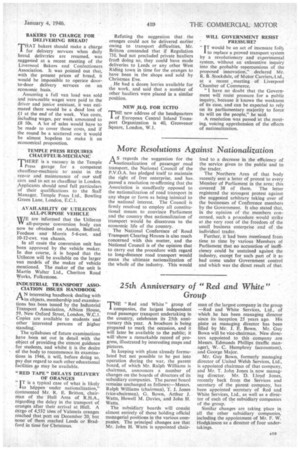More Resolutions Against Nationalization A S regards the suggestion for the
Page 21

If you've noticed an error in this article please click here to report it so we can fix it.
nationalization of passenger road transport, the National Council of the P.V.O.A. has pledged itself to maintain the right of free enterprise, and has passed a resolution re-affirming that the Association is steadfastly opposed to the nationalization of road transport in any shape or form as being inimical to the national interest. The Council is firmly resolved to employ all constitutional means to convince Parliament and the country that nationalization of transport would be disastrous to the economic life of the country.
The National Conference of Road Transport Clearing Houses is also much concerned with this matter, and the National Council is of the opinion that to carry out the procedure with regard to long-distance road transport would mean the ultimate nationalization of the whole of the industry. This would lead to a decrease in the efficiency of the service given to the public and to the trader.
The Northern Area of that body recently sent a letter of protest to every Member of Parliament in the area this covered 38 of them. The letter registered the strongest protest against the suggested arbitrary taking over of the businesses of Conference members by the Government. It also stated that, in the opinion of the members concerned, such a procedure would strike at the very root of the freedom of the small business enterprise and of the individual trader.
Further, it had been mentioned from time to time by various Members of Parliament that no accusation of inefficiency could be sustained against the industry, except for such part of it as had come under Government control and which was the direct result of that.




























































